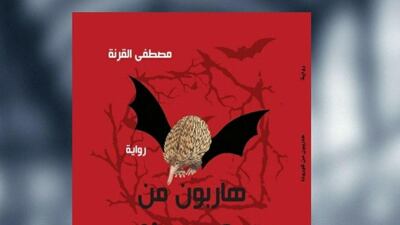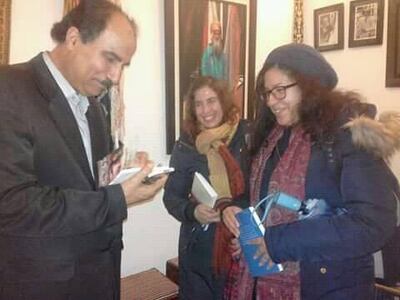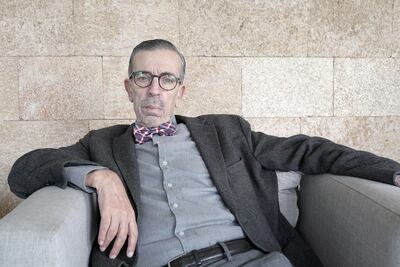A Jordanian author has published what could be the first Arabic language novel to deal with the coronavirus.
Titled Hariboon Min Corona (Escape from Corona), the work is penned by esteemed novelist and poet Mustafa Alqorna and has been released through the Jordanian publisher Dar Al Rwaya Al Arabia.
While the novel’s title promises a thrilling adventure set in the wake of the pandemic, Alqorna actually tackles the current crisis through a sobering and philosophical lens.
Set in various countries in East Asia, the novel is told through the eyes of an animal trader, whose business is severely disrupted by the coronavirus crisis.
In order to maintain his livelihood, the protagonist tries to be a step ahead by relocating and setting up his business in countries not yet afflicted by the virus.
During the course of the novel, Alqorna meditates on past pandemics and traces the role animals have played throughout history, both in forecasting encroaching viruses and saving humankind, thanks to their participation in vaccine trials.
A genuine attempt or a cash in?
Speaking to the Egyptian news site Masr Al Arabia, Alqorna said he started writing the novel in December, but then changed its focus to include Covid-19 after the first reported cases.
He states that Hariboon Min Corona blends his interests in East Asia and global affairs. "It is my habit that when I am working, I maintain some notes about what is going on in the world," he says. "I have always been interested in East Asia. It is a place that I have visited many times."
With the book having been released this month, Alqorna has been criticised on social media for cashing in on a tragic, unfolding situation.
The author defended himself by stating his regional pedigree and accusing critics of judging the work without having read it.
"As for the idea that I am seeking fame from this book, that's not true," he told Masr Al Arabia. "I am well known and translated my work into many languages. I am the former president of the Jordanian Writers Association."
‘Pandemics used as symbols': future Arabic novels about Covid-19
While Hariboon Min Corona is certainly one of, if not the first, Arabic novel to be set amid the pandemic, it will not be the last, says Fleur Montanaro, administrator of the International Prize for Arabic Fiction.
In a recent interview with The National, she said it is only natural for the coronavirus to appear in future works by Arab authors.
“I am sure there will be something. There has to be at some point,” she said. “But at the same time, I feel sorry to say this, but the Arab world has much bigger things to deal with apart from the coronavirus.
"I think what is happening now with the pandemic will be part of a greater story these authors want to tell.”
As for when further Covid-19 related novels will arrive, acclaimed Lebanese novelist Jabbour Douaihy says it could be years.
The Ipaf nominee told AFP last month that the coronavirus will "leave scars and marks on the mind" of present and future writers.
“Great authors wrote about previous pandemics and used them as symbols,” he said.
However, unlike Alqorna’s recent effort, he believes the best coronavirus-themed novels will arrive only after novelists fully understand the tragedy and magnitude of the event.
It is no surprise, Douaihy said, that interesting literature surrounding Lebanon's 1975-1990 civil war only came out years after the conflict.
"I don't think the Lebanese war was written about until it was over and done with, meaning it could be used in literature," he said. “Writing novels takes time – we can't write about events that are still taking place.”




